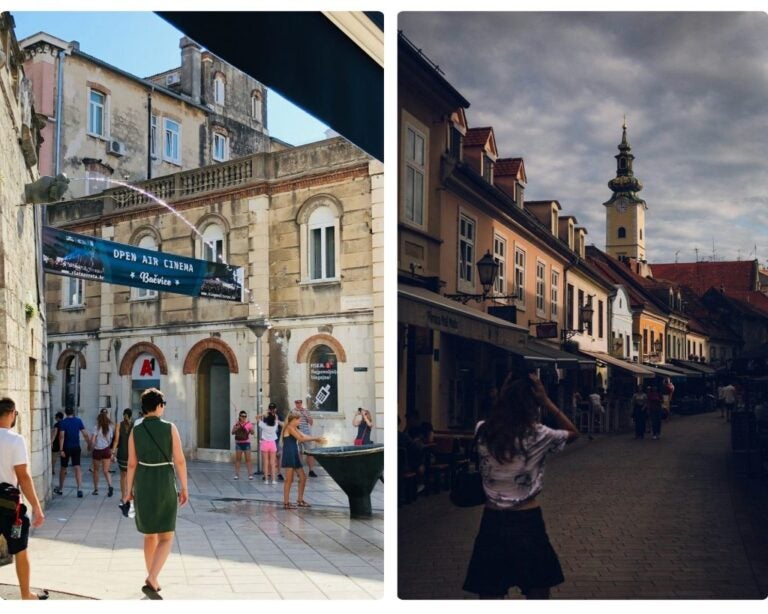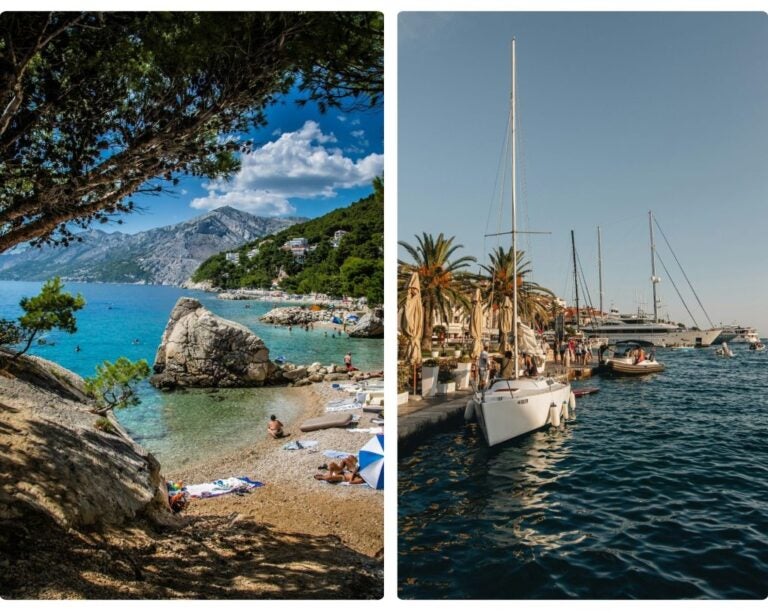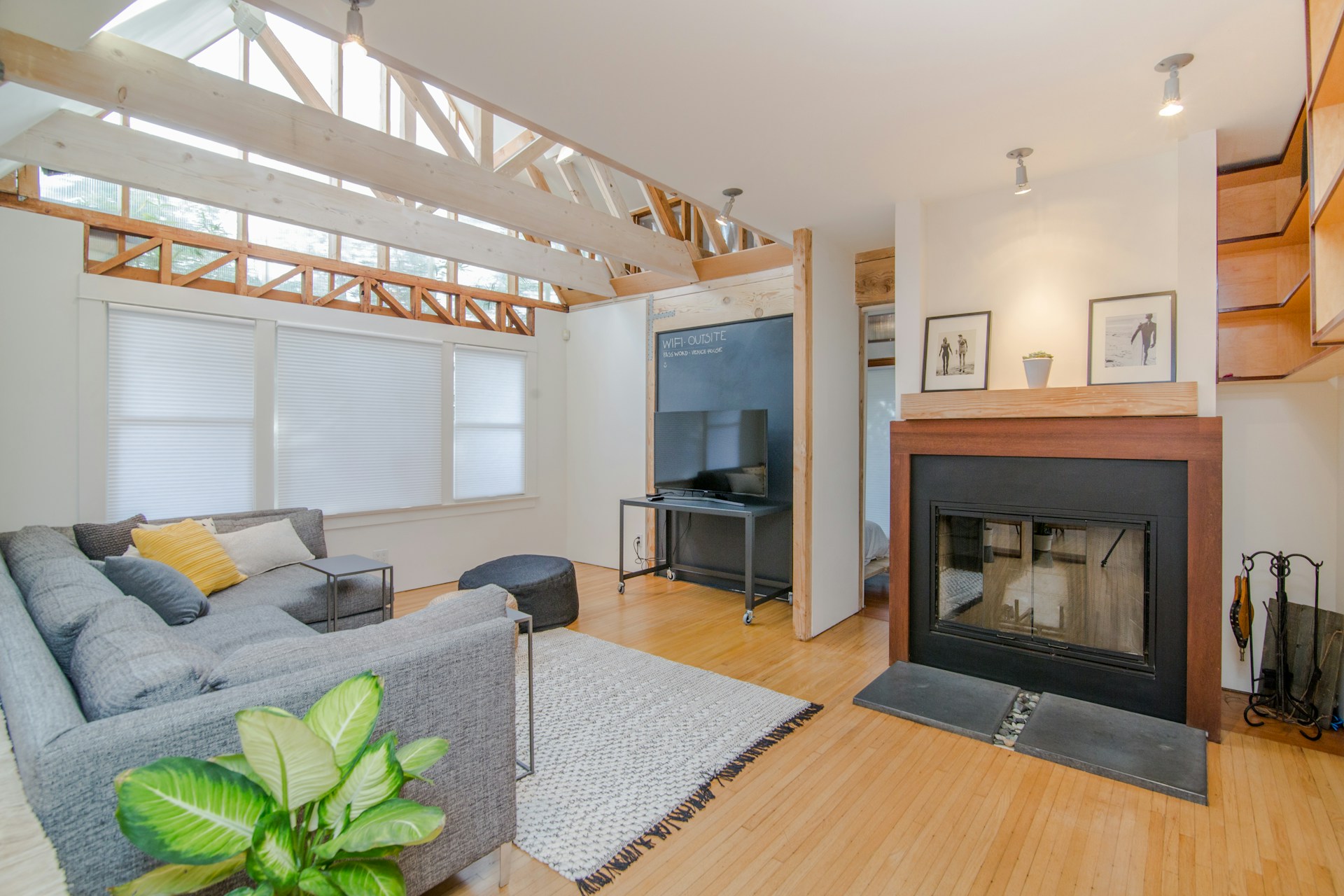Living as a digital nomad in Croatia: Tips and advice
The ultimate guide for digital nomads in Croatia: Discover the best options for accommodation, co-working, leisure, and more.
If you want to visit this Adriatic coastal country and stay temporarily as a digital nomad, this guide is a must-read to make it happen and discover Croatia’s top spots. This country welcomes digital nomads seeking to live in a place easily connected to other European destinations, with great social stability and quality of life. Croatia offers a digital nomad visa to attract remote workers worldwide who wish to live temporarily in the country.
As a digital nomad, if you’re looking for a destination with a digital nomad visa, strategic location, and double taxation agreements, Croatia is a great option.
Why choose Croatia to live as a digital nomad?
Croatia combines the best of Eastern Europe and the Mediterranean, offering remote workers a perfect mix of efficiency, quality of life, and recreational activities. Here are some of the main reasons to consider Croatia as your next destination:
1. Digital nomad communities and chance of networking in Croatia
Croatia has a growing digital nomad community, especially in cities such as Dubrovnik, Split and Zagreb. These places offer co-working spaces in Croatia and regular events like meet-ups, workshops, and group activities to connect with people worldwide. In addition, online platforms and social media facilitate access to these communities.
2. Quality of life and security in Croatia
Living in Croatia will allow you to enjoy a high quality of life at a relatively low cost compared to other European countries. Cities are safe, with low crime rates, making it an ideal destination for solo travellers. Croatia is also known for its natural landscapes, from pristine beaches to national parks such as Plitvice and Krka. This provides a relaxed environment to disconnect from work and explore in your free time.
3. Connectivity and strategic location in Croatia
Croatia is strategically located for those wishing to explore other countries in Europe and the Balkans. With direct flights to several European capitals and bus and train connections to neighbouring countries, travelling from here is easy and affordable. The country has an excellent internet infrastructure, which is essential for those working remotely. In urban areas and tourist destinations, you’ll find internet in Croatia with reliable speeds and wide coverage. Remember to complement your connection with our eSIM.
4. Culture and gastronomy in Croatia
Croatia’s cultural richness is undeniable. From its historic architecture to festivals like Ultra Europe in Split, there’s always something interesting to discover. The cuisine is another highlight, with Mediterranean, Italian, and Balkan influences offering a unique culinary experience. In coastal towns, you can enjoy fresh fish and seafood, while inland, traditional dishes such as čobanac or peka are a must.
Important: If you are a frequent traveler and want to stay connected without worrying about expensive roaming or looking for a new SIM at every destination, Holafly’s subscription plans are for you. With a single eSIM, enjoy internet in more than 170 countries for a fixed price and no surprises on your bill. travel without limits and connect easily and securely! 🚀🌍

Visas allowing legal residence in Croatia
One of the great advantages of being a digital nomad in Croatia is the option to apply for a visa specifically designed for remote workers. This demonstrates the country’s interest in attracting international talent. Here are the most notable options:
1. Digital nomad visa in Croatia
In 2021, Croatia introduced the digital nomad visa in Europe, a temporary residence permit for non-EU remote workers. This programme allows digital nomads to reside in Croatia for up to one year while working for foreign companies or as freelancers.
Key characteristics of the visa:
- It isn’t allowed to work for Croatian companies.
- It offers a tax exemption on income generated outside Croatia.
- It’s renewable after a waiting period outside the country.
To obtain it, you must prove remote work, have valid health insurance, and show sufficient income to support your stay.
2. Temporary residence visa for EU citizens in Croatia
If you have a European passport, you don’t need a specific visa to reside in Croatia. Instead, you can register with the local police to obtain a temporary residence permit. This allows you to live and work from anywhere in the country with greater flexibility.
3. Visa extension and change options in Croatia
If you decide to stay longer, you can explore options to switch to other residence permits, such as study, employment, or family reunification permits. It’s important to start the renewal or change process early to avoid legal problems.
Where to get more information? The Croatian authorities have updated their websites with the specific requirements for each visa. You can also consult with agencies specialized in digital nomad advice in Croatia, such as Evolve Coliving, to help streamline your application.
Where to live and work as a digital nomad in Croatia?
Croatia offers a wide range of ideal spots for digital nomads, from vibrant cities to peaceful islands in the Adriatic. Here we explore the main options for living, working and making the most of this country.
Top cities for a digital nomad in Croatia
1. Zagreb
The capital of Croatia is a cultural and economic centre with a dynamic and cosmopolitan atmosphere. Zagreb offers a combination of history, modernity and an ideal infrastructure for working remotely. Its pros include:
- Zagreb offers a wide range of co-working spaces, such as Impact Hub and BIZkoshnica, with prices ranging from €150 to €300 per month ($160 to $320).
- A variety of accommodation options, from co-livings in Zagreb to centrally located flats.
- Public spaces such as cafés and parks with free internet access in Croatia, ideal for working outdoors.
2. Split
Known for its Roman architecture and proximity to the sea, Split blends historical beauty with a relaxed lifestyle. It’s perfect for those looking to work close to the beach without sacrificing modern amenities. Its advantages include:
- A growing community of digital nomads organising events and activities.
- Co-working spaces in Split, such as Saltwater, with rates starting at €120 ($130) per month.
- Accommodation options range from flats overlooking the Adriatic to exchange houses in residential areas.
3. Dubrovnik
Famous as the setting for productions such as Game of Thrones, Dubrovnik is an iconic Croatian destination. Although prices are higher than in other cities, the experience is worth it. Here you’ll find:
- Hotels and flats fully equipped for long stays.
- Cafés and public libraries with good internet connection, ideal for work.
- An international atmosphere thanks to tourism and the influx of digital nomads.
4. Zadar
Less known but equally charming, Zadar is a city that blends history with modernity. It offers a quieter experience, perfect for those who want to escape the hustle and bustle of the big cities.
Accommodation options for digital nomads in Croatia

Croatia has accommodation options to suit all budgets and lifestyles. Some of the most recommended are:
- Colivings in Croatia: These spaces, such as GrabAHome, are ideal for those who want to share with other digital nomads.
- Hotels and hostels: Many hotels in cities such as Split and Zagreb offer special rates for longer stays.
- Exchange houses: A cheap and practical option for those looking for an authentic experience.
- Private Airbnb apartments cost €400 ($430) to €1,200 ($1,290) per month, varying by location and season.
Co-working spaces and workplaces in Croatia
In addition to the co-working spaces mentioned above, Croatia has libraries, cafés and parks with high quality internet. Some highlights include:
- In Zagreb, the city’s public library is a popular spot for digital nomads.
- In Split, many cafés offer quiet spaces and power sockets, ideal for working.
- In Dubrovnik, Gradac Park has not only spectacular views, but also good connectivity.
Taxes to be aware of as a digital nomad in Croatia
Does a digital nomad in Croatia pay taxes?
Croatia has implemented favourable tax policies for digital nomads in Europe. Digital nomad visa holders in Croatia pay no local taxes on income generated outside the country. However, it’s essential to comply with the requirements of this visa to avoid tax problems. If you stay in Croatia for over 183 days in a calendar year, you may be considered a tax resident and required to pay taxes on global income.
Double taxation treaties in Croatia
Croatia has double taxation agreements with many countries, helping you avoid paying taxes twice on the same income. These treaties are particularly useful for those working remotely for companies abroad.
Health insurance and quality of health service in Croatia
Access to the public health system in Croatia
Croatia has an accessible public healthcare system, though digital nomads usually opt for private insurance for more comprehensive coverage. If you have the digital nomad visa in Croatia, you must show proof of valid health insurance for your entire stay. The public system offers good quality services, but you may need a translator, as not all doctors speak English fluently.
Recommended health insurance in Croatia
For digital nomads, options like SafetyWing or World Nomads are ideal, offering international coverage, including emergency services and medical consultations in Croatia. Prices vary depending on the policy duration, but they typically start at €40 ($43) per month, offering coverage from €30,000 ($32,300).
Quality of health care in Croatia
In general, Croatia has well-equipped clinics and hospitals in its major cities, such as the Zagreb Clinical Hospital. For less urgent care, you can also go to private medical centres, which offer services in English and have shorter waiting times. Ideally, find the best options for your budget and convenience.
Daily life in Croatia
Transport and mobility in Croatia
Croatia offers multiple options for getting around, from efficient public transportation to vehicle rentals.
Using a foreign license as a digital nomad in Croatia
If you plan to drive in Croatia, EU foreign licenses are valid without restrictions. For citizens from other countries, it’s advisable to obtain an international driving permit, accepted during your temporary stay. If you decide to stay long-term, you can validate your foreign licence depending on the agreements between your home country and Croatia.
Public transport in Croatia
Public transport in Croatia is efficient and accessible, if you learn how to navigate through the different options, it’ll be more convenient for you. These are the means of transport found especially in cities like Zagreb and Split. Options include:
- Buses: The most common form of urban and intercity transport, with tickets starting at €1.5 ($1.63) per trip.
- Trains: Ideal for connecting major cities, although not always the fastest.
- Shared vehicles and taxis: Services such as Uber and Bolt are widely available and cheaper than traditional taxis.
- Bicycles and scooters: Several cities offer bicycle and electric scooter rentals for short distances.
Financial management in Croatia
Recommended banks in Croatia
Croatia has both traditional and digital banking options for managing your finances. Some of the most recommended are:
- Zagrebačka Banka: One of the largest banks, with English-language services and multiple branches.
- Erste Bank: Ideal for opening accounts as a foreigner, with user-friendly services and intuitive applications.
- Digital banks: Options such as Revolut and Wise are excellent for avoiding international fees and handling multiple currencies.
Withdrawing money and costs in Croatia
ATMs are abundant in cities and tourist areas, but it’s important to use those with low fees, like local bank ATMs. International withdrawal fees vary between €2 and €5 ($2.19 and $5.40), depending on your bank. To avoid additional costs, opt for fee-free cards, such as those offered by digital banks for digital nomads.

Food in Croatia
Supermarkets and markets in Croatia
Shopping in Croatia is easy thanks to a wide variety of supermarkets. Some of the most common are:
- Konzum: Ideal for everyday shopping, with local and international products.
- Lidl: Popular for its low prices and weekly promotions.
- Local markets: Perfect for buying fresh fruit, vegetables and produce at competitive prices.
Average cost of meals in Croatia
The cost of a meal at a local restaurant ranges from 8 to 12 euros ($8.70-$13). At a mid-range restaurant, expect to spend between 20 and 30 euros ($21.60-$32). For budget options, bistros and cafés in Croatia offer menus for less than €7 ($7.50).
Leisure and free time in Croatia
Croatia offers a wide variety of leisure activities to enjoy in your free time.
Sports and outdoor activities in Croatia
- Hiking: Areas such as the Plitvice Lakes National Park or Mount Marjan in Split offer breathtaking routes.
- Water sports: In coastal cities such as Dubrovnik and Zadar, kayaking, paddle-boarding and scuba diving are popular activities.
Culture and festivals in Croatia
Croatia is known for its music festivals, like Ultra Europe in Split, and cultural events like the Zagreb Film Festival.
Gyms and indoor activities in Croatia
In larger cities, you’ll find well-equipped gyms and yoga studios, with monthly memberships starting at €30 ($32.30). Some co-livings and co-working spaces in Croatia also include gyms in their facilities.
Best seasons to stay in Croatia
Climate in Croatia
Croatia has a Mediterranean climate on the coast and a continental climate inland, offering unique charm in each region throughout the year.
- Spring (April-June): Ideal for exploring without the summer crowds.
- Summer (July-August): Perfect for enjoying the beaches, although prices tend to be higher.
- Autumn (September-November): A quiet season with pleasant temperatures.
- Winter (December-March): Although it’s cold inland, coastal cities have milder weather and less tourism.
Cost of living as a digital nomad in Croatia
The cost of living in Croatia is relatively affordable compared to other European destinations, but it varies by city.
Average monthly expenditure in Croatia
- Accommodation: Rent for a modest apartment in Zagreb starts at €400 (€437), while in tourist cities like Dubrovnik, it can reach €1,200 (€1,310). Colivings in Croatia are a popular option, with prices ranging from €500 ($538) to €800 ($860) per month.
- Coworking spaces: From €120 ($130) per month in Split and goes up to €300 ($326) for premium spaces in Zagreb.
- Food: Doing your own shopping can cost between €150 ($161) and €250 ($269) per month. If you eat out regularly, the monthly expenditure could be around €300 ($326).
- Transport: A monthly public transport pass costs approximately €50 ($54) in cities such as Zagreb.
Croatia is more affordable than other Western European countries, but prices can rise significantly during peak season, especially in coastal cities.





 Language
Language 


















 No results found
No results found







